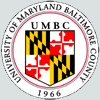| ||||||||||||||||||||
Tips:  Range on the Protein: Protein ID Protein Position Domain Position: 
|
|---|
Weblogos are Copyright (c) 2002 Regents of the University of California
| DMDM_info@umbc.edu | 1000 Hilltop Circle, Baltimore, MD 21250 | Department of Biological Sciences | Phone: 410-455-2258 |




 Phenylalanine ammonia-lyase (PAL) and histidine ammonia-lyase (HAL). PAL and HAL are members of the Lyase class I_like superfamily of enzymes that, catalyze similar beta-elimination reactions and are active as homotetramers. The four active sites of the homotetrameric enzyme are each formed by residues from three different subunits. PAL, present in plants and fungi, catalyzes the conversion of L-phenylalanine to E-cinnamic acid. HAL, found in several bacteria and animals, catalyzes the conversion of L-histidine to E-urocanic acid. Both PAL and HAL contain the cofactor 3, 5-dihydro-5-methylidene-4H-imidazol-4-one (MIO) which is formed by autocatalytic excision/cyclization of the internal tripeptide, Ala-Ser-Gly. PAL is being explored as enzyme substitution therapy for Phenylketonuria (PKU), a disorder which involves an inability to metabolize phenylalanine. HAL failure in humans results in the disease histidinemia.
Phenylalanine ammonia-lyase (PAL) and histidine ammonia-lyase (HAL). PAL and HAL are members of the Lyase class I_like superfamily of enzymes that, catalyze similar beta-elimination reactions and are active as homotetramers. The four active sites of the homotetrameric enzyme are each formed by residues from three different subunits. PAL, present in plants and fungi, catalyzes the conversion of L-phenylalanine to E-cinnamic acid. HAL, found in several bacteria and animals, catalyzes the conversion of L-histidine to E-urocanic acid. Both PAL and HAL contain the cofactor 3, 5-dihydro-5-methylidene-4H-imidazol-4-one (MIO) which is formed by autocatalytic excision/cyclization of the internal tripeptide, Ala-Ser-Gly. PAL is being explored as enzyme substitution therapy for Phenylketonuria (PKU), a disorder which involves an inability to metabolize phenylalanine. HAL failure in humans results in the disease histidinemia. No pairwise interactions are available for this conserved domain.
No pairwise interactions are available for this conserved domain.























